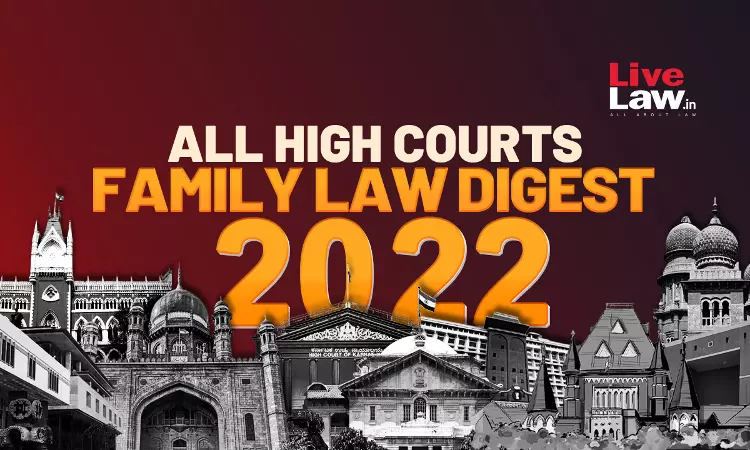- Home
- /
- Top Stories
- /
- All High Courts Family Law Digest...
All High Courts Family Law Digest 2022
LIVELAW NEWS NETWORK
15 Feb 2023 3:50 PM IST
LiveLaw brings to you the most awaited High Courts Digest on Family law cases from the year 2022.ALLAHABAD HIGH COURT Interim Maintenance- Extremely Difficult For Woman To Maintain Herself With ₹1500 Per Month: Allahabad High CourtCase title - Sanjeev Rai v. State of U.P. and AnotherCase citation: 2022 LiveLaw (AB) 14Emphasizing that it is the duty and responsibility of the husband to...
Next Story



